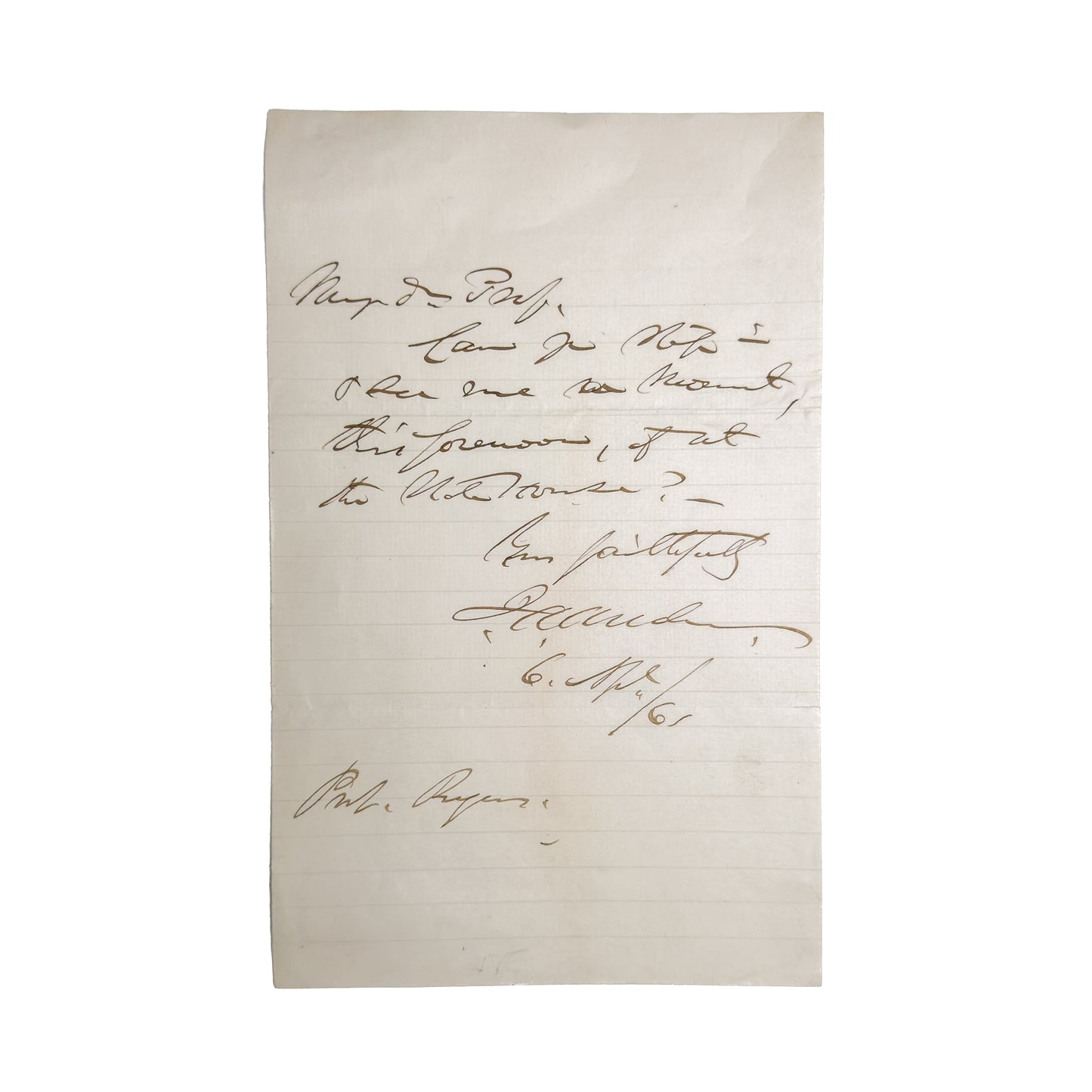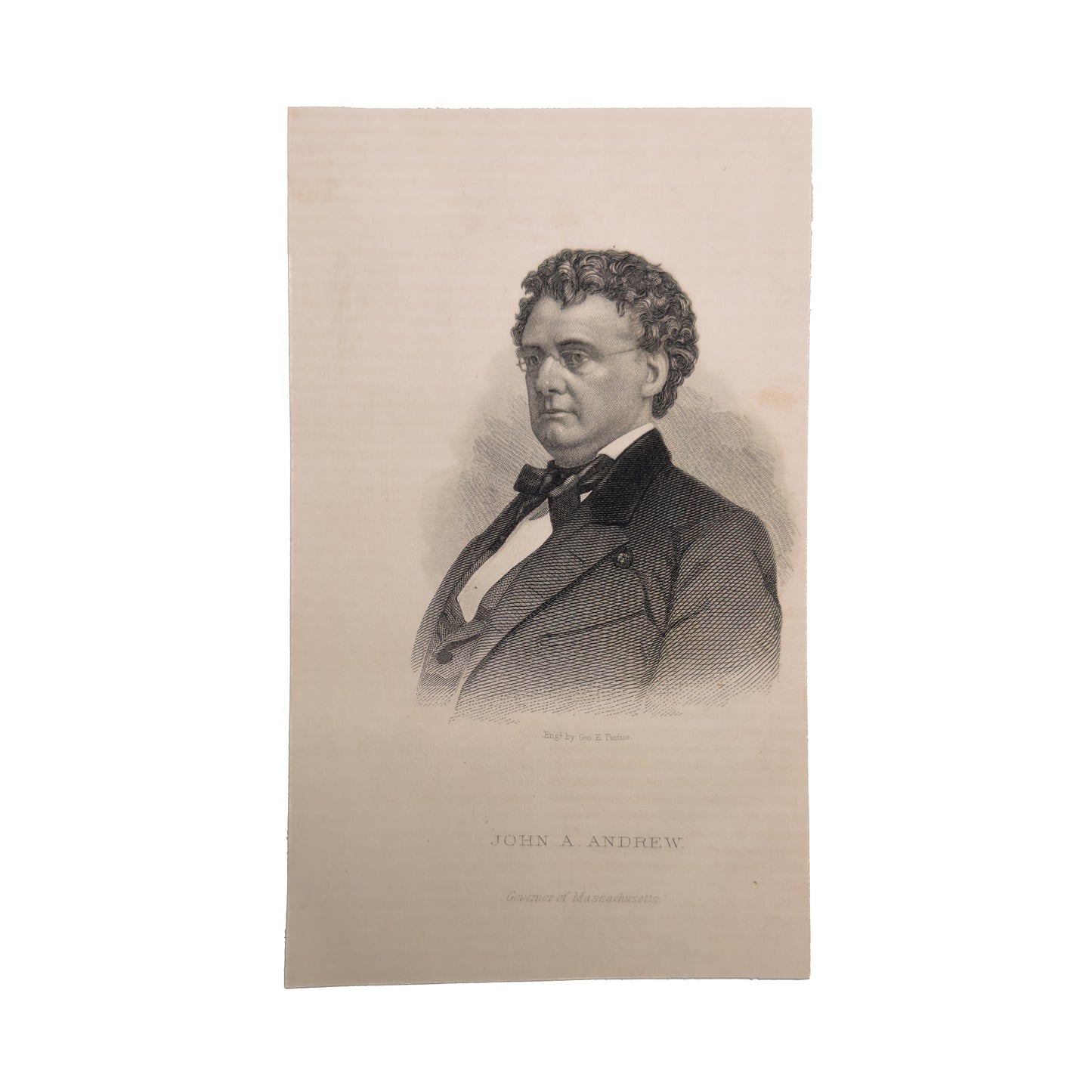Specs Fine Books
1861 JOHN ALBION ANDREW. Slave's Lawyer - Letter on Eve of Civil War - Black Regiments &c.
1861 JOHN ALBION ANDREW. Slave's Lawyer - Letter on Eve of Civil War - Black Regiments &c.
Couldn't load pickup availability
A very nicely situated simple letter by abolitionist and anti-slavery lawyer and politician, John Albion Andrew [1818-1867]. Engraving included.
Born in Maine, as a teenager he attended Gorham Academy and was there exposed to the writings of the abolitionists. He was primarily moved by William Lloyd Garrison, and from a young age openly aligned himself with Garrison and his radical, no-compromise approach to anti-slavery.
He then attended Bowdoin College, studied Law, and was admitted to the Bar in Boston [1840]. He aligned with the "Conscience Whigs," the most radical anti-slavery party. He was a member of the executive committee of the original "Vigilance Committee" in Boston, whose aim was to find refuge for fugitive slaves, and he was one of the founders of the Free Soil Party, designed to prevent the expansion of slavery into the Western Territories.
By the time he started his own practice [1847] he had already developed a reputation as a radical, uncompromising person when it came to the abolitionist cause. He used his legal skill to help defend those accused of being "fugitive" slaves, defended the slave rescuers in fugitive slave Anthony Burns case [1854], etc., He defended a mulatto man accused of murder pro bono, and was known as the "poor man's lawyer," or the "negro's lawyer."
It all came to a head, and he was catapulted to the national scene when, after John Brown's raid on Harpers Ferry, Andrew personally led the charge to organize Brown's legal defense.
As a result, he was elected Governor of Massachusetts and played an important role in the Civil War. Inaugurated in January of 1861, he was a persistent critic of Lincoln and was perhaps the most insistent; it was in part Andrew that ultimately moved Lincoln to issue the Emancipation Proclamation. Andrew felt it did not go far enough and called it a "poor document" but a "mighty act."
Andrew was also instrumental in pushing for black soldiers to form regiments for the Union, a position already advocated by Frederick Douglas. He volunteered Massachusetts to develop the 54th Infantry, only the second black regiment in the Union, and made famous in modern times through the film, Glory. He argued in favor of black officers, a request which was denied by the Federal Government. He also argued for equal pay, which was also denied. He then offered to make the pay equal from the Massachusetts treasury. . . which the troops rejected on principal, refusing to deploy until the Federal Government paid them equally themselves.
The present letter, a fine single page framing example, was written just 6 days before the beginning of hostilities with South. It is unclear to whom it is addressed, but it reads,
"My d[ea]r P***,
Can you please come & see me when moment this forenoon, if at the State House?
Yours faithfully,
J. A. Andrew.
6 April / 61
P*** Ryan [?]"
Accompanied by a fine engraving of Andrew, both in a very fine state.
Share




